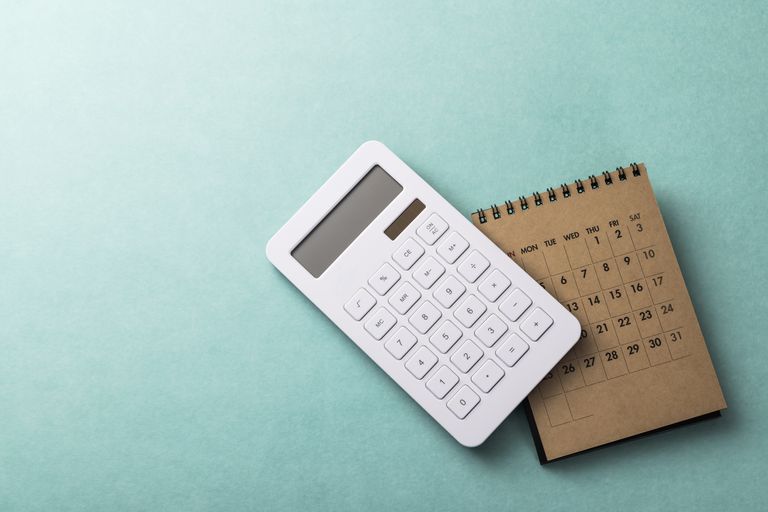Here's How You Can Create A Monthly Budget And *Actually* Follow It
Okay, be honest: 'Pag sweldo na, do you a) check out all the items on the many online shopping carts you've been adding to all month or b) move a chunk of your salary across to a savings account and update your color-coded spreadsheet straight away?
Of course, it's your money and whatever works for you is absolutely fine. But if you answered 'a' wishing you could be a little more 'b', there are steps you can take to get there and run a successful monthly budget. Before you get to the budgeting, though, and if you're new to managing your money in a more considered way, you need to pause and take stock.
"For me, the most important thing is to first stop and look back and understand really how you spend your money. Most people don't actually check how much money they have in their bank account, and don't look back. So, look at your transactions and work out where your money is going," says Emilie Bellet, founder of Vestpod, host of The Wallet podcast, author of You're Not Broke, You're Pre-Rich.

"Budgeting is about taking a step back and understanding what you've [spent on] in the past three months or six months and asking: 'What am I going to do with my money and [how can I] be very intentional about it?' So when you look forward, it's trying to understand what you need—your home, food, etc—versus what you want. And wants are completely fine. We work hard and we want to make sure we can give ourselves treats, but it needs to be somehow under control,” Emilie adds.
Monthly budget: Know your priorities.
Another key step in setting up a successful and achievable budget is knowing your priorities. "When we look at financial priorities, the first thing we all need to do is look at repaying expensive debt. If you look at credit card debt and loans, these are made because when you're short of money, you need money very quickly. The bank will lend you money, but that's going to be at an expensive rate because you're supposed to repay these very quickly, and if you don't or you only repay your minimum balance, you can end up paying a lot of interest," Emilie explains.
Another important financial priority to consider is an emergency fund, according to Emilie. "It's basically making sure you have a little pot of savings somewhere at the bank, in case something happens to you, from losing your job to needing a replacement phone. Whatever it is, you can use your emergency fund. When we're waiting for our next sweldo to [pay off an unexpected cost] we can be in a very tricky situation, and we don't have any options. So, what we want is to get these options and the freedom back," Emilie says.
"And then after that, it's about asking how to build a little plan for your money. You can do that with a financial advisor, but if you can't access a financial advisor, you can write down your financial goals. So, what do you want to achieve in the short term? For me, in the short term, having this emergency fund is very important."
Monthly budget: Staying accountable
Once you've done your audit and sorted your priorities, it's time to get to it with the saving. Sure, it can feel tough at times, but there are ways to keep yourself feeling motivated and accountable.
Kia Commodore, personal finance guru and founder of Pennies to Pounds is an advocate for automating your savings, buddying up, and setting smaller, achievable challenges. "If you are someone who doesn't want to be too hands on with savings, I would create a standing order, so that's where you set up the instruction for your bank to move money from your current account to savings," Kia suggests. "Have that maybe on a daily basis, weekly, monthly—people like [to] save in different ways so set the frequency however you want. Once you've set up the standing order, you don't need to think about it again," she adds.

If you're getting used to being in a saving mindset, you could try linking up with a savings partner. "It could be a family member, it could be [a] friend, someone who maybe has a similar goal to you, then you can both check in with each other and keep each other accountable [by] asking: 'How much have you saved? What's your goal? How close are you? Did you dip into your savings?' If you did dip in, you can have an open conversation," Kia says.
"Another fun way that I like to [save] is by getting involved in saving challenges. So again you can use [or] bring someone in with you or do it by yourself. But there are loads of free saving challenges online where you follow the challenge along, putting money to the side [each day, week, month etc]. Some of the challenges are live so they have forums where you can check in with people who are doing the same as you, to get motivation," Kia advises.
Kia is also a big fan of budgeting apps, calling her favourites "a godsend."
"In terms of budgeting apps that really work and that I like, one of them is Emma. You can link your bank account in there and it breaks down how much you want to spend, how much you spend, and it keeps you accountable. That way you can see where you're overspending and where you can cut back."
"I also really like Yolt—you can link more than one bank account, all your savings, even investments. You can have it all in one place so you can keep track of all your finances there. You can set limits for yourself and the app gives you alerts if you go over that and keeps you on track," Kia says.
What to do if you’re struggling
The key messages if you're finding it tough are these: There are places you can turn to for a bit of support, and it's totally normal to find this stuff overwhelming. "There are lots of groups online that you can get involved in—talking to people with similar goals or similar challenges can help to keep you motivated," Kia says.

Do consult a financial advisor if you're really struggling and you're able to access one. "They're the only ones who can actually give advice on your specific circumstances," Emilie says.
There are places you can turn to for a bit of support, and it's totally normal to find this stuff overwhelming.
She points out that if your struggle is around the urge to spend, there are barriers you can put in your own way, like deleting your credit card details from retailers' websites, or hiding your card somewhere in your home (just make sure it's not hidden too well)! "This is just creating a little friction so you'll say: 'I don't know where my card is. Okay, let's think about that tomorrow' and by tomorrow maybe you forgot about the purchase," she says. Ultimately, getting used to budgeting is probably going to take time, and that’s okay.
Source: Cosmo PH

Post a Comment
0 Comments